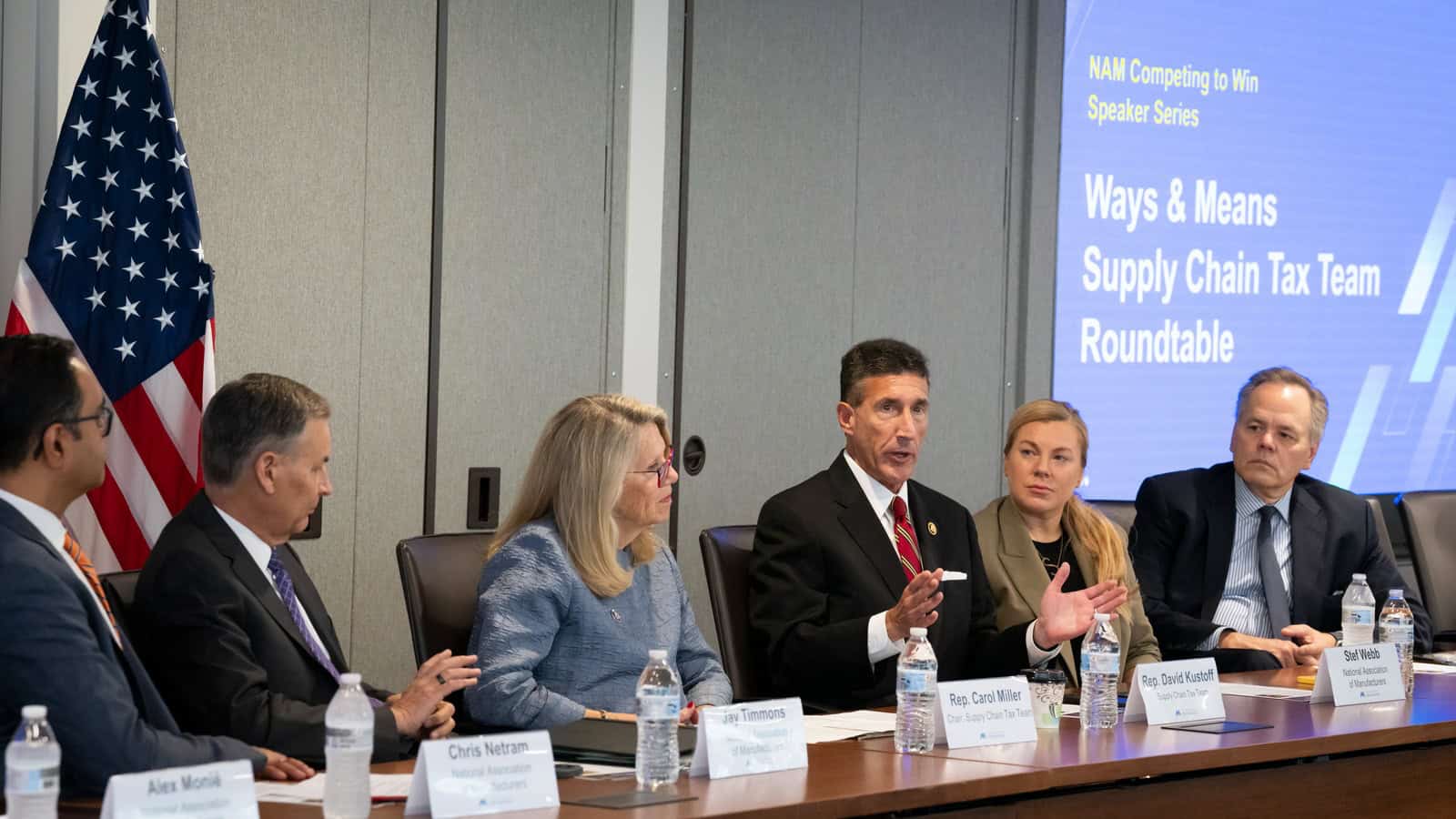Congressional Tax Writers Join NAM to Talk Tax Reform

As part of its “Manufacturing Wins” campaign to preserve pro-manufacturing tax provisions, the NAM hosted a roundtable this week with Reps. Carol Miller (R-WV) and David Kustoff (R-TN)—respectively the chair and a member of the Ways and Means Committee Supply Chain Tax Team.
Preparing for 2025: The Supply Chain Tax Team has jurisdiction over the corporate income tax rate. Tax reform reduced the corporate rate to 21%, spurring the creation of thousands of new manufacturing jobs—and the NAM is working with Congress to ensure the U.S. maintains a competitive corporate rate as policymakers debate next year’s “tax Armageddon.”
Understanding the benefits: Rep. Miller emphasized that the dollars saved due to tax reform’s lower corporate rate have supported job creation, higher wages and the flourishing of local communities.
- As a business owner herself, she said she believes it’s important for members of Congress in charge of tax policy to understand the risks businesses take, the communities they support and the certainty they need to be successful.
Measuring the impact: Rep. Kustoff emphasized the importance of real-world data on the benefits of the lower corporate tax rate—from the number of jobs created to the work businesses have done to provide their employees with bonuses and higher wages.
- According to Rep. Kustoff, real-world metrics are important for educating policymakers about the need for action, as crucial, pro-manufacturing tax provisions are set to expire at the end of 2025.
Recognizing the ripples: The discussion also touched on the wider impact of tax increases on global supply chains and the broader U.S. economy.
- Participants noted that a higher corporate income tax rate’s ripple effects would hurt companies throughout the economy—even when those companies are pass-throughs and not explicitly affected by the corporate income tax rate.
- That’s because these small businesses often sell to and partner with larger corporations that would have less capital available under a higher corporate rate.
Our take: “Prior to 2017 tax reform, the U.S. had the highest corporate tax rate among the more than three dozen countries in the Organisation for Economic Cooperation and Development and the third highest in the entire world,” said NAM Vice President of Economic Policy Charles Crain.
- “That put manufacturers in America at an alarming disadvantage. A competitive tax rate helps business compete in the global economy, leads to job creation, investments and purchases of new equipment and allows manufacturers to give back to their communities.”
- “If Congress were to raise the corporate rate, it would force America to take a step back on the global stage—at a time when other countries around the world are implementing more competitive tax agendas.”
